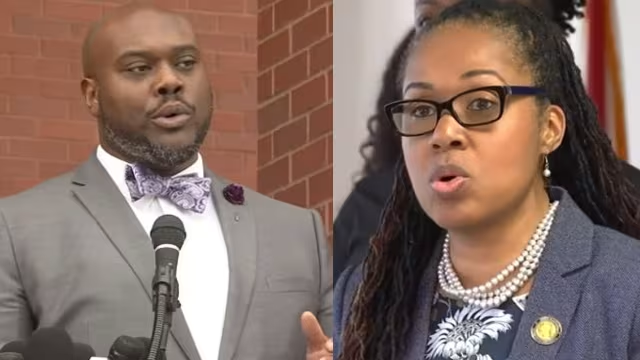
As Florida’s 2024 elections approach, one of the most watched races is for the State Attorney of the Ninth Judicial Circuit, encompassing Orange and Osceola counties. This position wields immense influence, overseeing the prosecution of criminal cases, determining policy directions for law enforcement, and ensuring justice for the public. With major policy shifts and criminal justice reform becoming key issues, the candidates for this role are stepping into the spotlight.
In this post, we’ll explore the key contenders, their platforms, and what’s at stake in this pivotal race. Here’s a breakdown of the major candidates and why their race has garnered significant attention not only in Florida but across the U.S news.
The Ninth Judicial Circuit: A Crucial Role in Florida’s Legal Landscape
The Ninth Circuit State Attorney’s office is one of the most powerful in the state. From handling cases of violent crime, drug offenses, and domestic violence to navigating reforms in how these cases are prosecuted, this office can set precedents for the entire state. The race for State Attorney in this jurisdiction has often been a battleground between progressive reform advocates and traditional tough-on-crime proponents.
This year’s election reflects that larger tension, as candidates bring different visions for criminal justice, public safety, and law enforcement accountability. With the backdrop of ongoing debates over bail reform, the death penalty, and diversion programs, voters in Orange and Osceola counties are faced with critical decisions.
Key Contenders for Ninth Circuit State Attorney
1. Incumbent: Monique Worrell
Monique Worrell, the current State Attorney, has been a significant figure in Florida news today due to her stance on criminal justice reform. She has gained both praise and criticism for her progressive policies aimed at reducing incarceration rates and expanding rehabilitation programs.
Since taking office, Worrell has focused on diversion programs, which seek to reduce prison populations by offering alternatives to incarceration for non-violent offenders. This approach has attracted national attention, as she prioritizes addressing the root causes of crime, such as mental health and substance abuse issues, rather than relying on punitive measures.
Supporters of Worrell applaud her for promoting rehabilitation over punishment, arguing that this is a necessary shift in a justice system that disproportionately impacts minority communities. However, her critics claim that her policies are too lenient and contribute to rising crime rates, making public safety a major campaign issue in this election.
Worrell remains steadfast in her belief that Florida needs long-term solutions rather than temporary fixes, stating, “We need a justice system that is not about locking people up, but lifting them up.”
2. Challenger: Ryan Williams
Ryan Williams, a seasoned prosecutor who previously worked in the State Attorney’s office, is positioning himself as a strong alternative to Worrell’s progressive policies. Williams is focused on a more traditional approach to crime, advocating for tougher sentencing and harsher penalties for repeat offenders.
Williams has criticized Worrell for being soft on crime, pointing to statistics that he claims reflect a rise in violent crime under her leadership. In several public debates, he has emphasized the need to prioritize victims’ rights, stating that a stronger hand is needed to restore public trust in the justice system.
Williams has also spoken out against Worrell’s stance on the death penalty. While she has been cautious about seeking the death penalty, particularly in cases where there may be mitigating circumstances, Williams has been an outspoken supporter of its use in cases involving the most egregious offenses. His campaign message revolves around holding criminals accountable while ensuring justice for victims, a stance that resonates with voters who are concerned about public safety.
3. Outside Contender: Joe Kimball
Another name making waves in the Florida news circuit is Joe Kimball, a former defense attorney with deep roots in community advocacy. Kimball’s platform is a mix of criminal justice reform and strong community policing. His approach aims to strike a balance between Worrell’s progressive reform efforts and Williams’ more traditional stance.
Kimball has emphasized the importance of transparency and accountability in the justice system. He proposes creating community oversight boards to ensure that law enforcement and prosecutors are held to high standards. His campaign has focused on restoring trust between the justice system and the community, particularly in minority neighborhoods that have historically had tense relationships with law enforcement.
Kimball’s unique position as a defense attorney gives him insight into the flaws of the prosecution process, which he argues is too often about winning convictions rather than delivering justice. His candidacy offers a middle ground for voters who seek reform but also want to ensure public safety remains a priority.
Key Issues Shaping the Election
1. Criminal Justice Reform vs. Public Safety
This race has largely centered on the balance between criminal justice reform and maintaining public safety. Worrell’s progressive agenda, which includes expanding rehabilitation programs, avoiding mandatory minimum sentencing, and reducing reliance on incarceration, has sparked debate. While these policies resonate with reform advocates, opponents argue that they may jeopardize public safety.
On the other hand, candidates like Williams are capitalizing on a “law and order” platform, appealing to voters who believe that stricter sentencing and harsher penalties are needed to deter crime. This debate has dominated Florida daily news and continues to be a focal point of the campaign.
2. Death Penalty
The death penalty remains a divisive issue in Florida, with differing opinions on its application. Worrell’s cautious approach, rooted in concerns about wrongful convictions and systemic inequalities, contrasts with Williams’ advocacy for its expanded use in extreme cases. Kimball has yet to take a clear stance, but he has expressed concern over the potential for its misuse.
3. Community Trust
Restoring trust in the justice system is another significant theme. Kimball’s push for more transparency and accountability aligns with growing demands from the public for greater oversight of law enforcement and prosecutors. This is particularly relevant in Orange and Osceola counties, which have seen significant demographic shifts and increased tensions between communities of color and the police.
What is clear is that the Ninth Circuit State Attorney election has gained prominence not only within Florida but also on the national stage. This race could influence the broader criminal justice reform movement and help shape future policies across the state.





